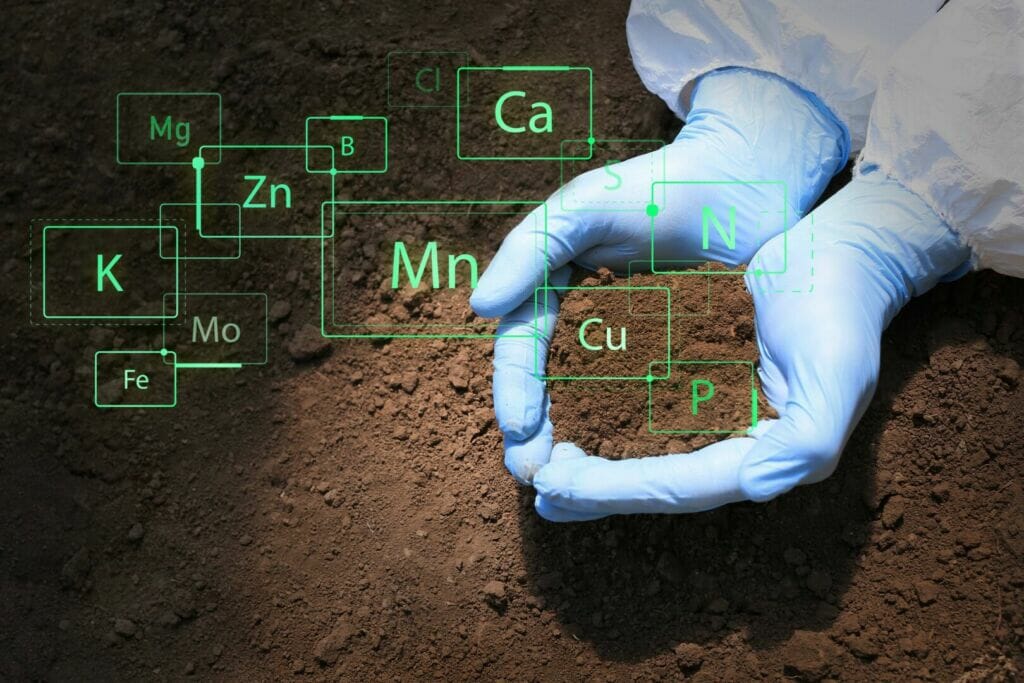Soil Testing and Analysis
Soil testing allows growers to plan inputs based on what nutrients are available to plants. Having the right kind and proper amounts of fertilizer and other inputs is key to a successful crop.

3 steps to soil testing
A soil testing program consists of 3 steps:
- Soil Sampling. One of the most important steps in a soil testing program is to obtain a composite soil sample or samples that accurately represent the soil in the field. This requires good soil sampling equipment like Amity Technology Soil Samplers and a sampling plan with FarmQA.
- Soil Analysis. For this step you must use proven methods that accurately evaluate the amount of available nutrients in the soil. In addition to good methods of analysis, the laboratory should be very efficient.
- Fertilizer Recommendations. The end result of a soil analysis is a recommendation telling a grower whether or not to apply fertilizer and, if fertilizer is needed, how much should be applied for the crop to be grown.

Soil elements
The Amity Technology soil testing package tests soil for:
| • pH | • Nitrate-Nitrogen |
| • Phosphorus | • Potassium |
| • Zinc | • Iron |
| • Manganese | • Copper |

Efficient Results
The Amity Technology Soil Testing package is designed so that four people should be able to prepare and analyze 150 soil samples per day. As experience grows, that could be increased to 300-400 samples per day, or up to 104,000 samples per year, with each sample analyzed for pH, N, P, and K.

Profitable production
Soil chemical analysis (soil testing) with the Amity Technology custom soil lab is a rapid, inexpensive, and reliable way to determine lime and fertilizer needs for each field before the seed is planted and costly inputs are added. This, combined with good seed, effective weed and disease control, other good management practices, and favorable weather will result in profitable crop production.

